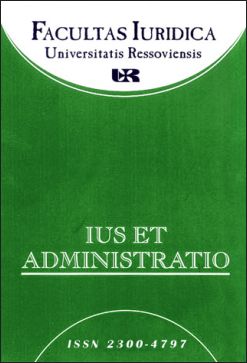The Separation of Competences and Tasks of the Organs of Architecture and Building Administration and Building Supervision
Keywords:
competence, task, public administration, supervision and controlAbstract
This article touches the issue of the separation of tasks and competences of architecture and building administration and building supervision. Existing regulation of the tasks and competences of these administrative bodies may cause difficulty in determining the properties of the organ. The problem largely refers to the expected nature of the activities for these organs, which may be difficult in the division of powers of supervision and control. The introduced division of the organs of building administration is mainly the effect of the separation of administrative and legal functions from the inspection and control functions. In this concept there can be seen that the administration organs of architecture and building are competent for permissions to carry out construction works and construction supervisors are empowered in the matters of the supervision over the construction works. An important issue for the problems taken in the elaboration is an existing there connection of the competences of architecture and construction administration with construction supervision control organs in the field of control activities. Control competences of both organs are performed in the sphere of diversity of their tasks’ nature. It seems, therefore, that the organs’ separation in the present regulation is an expression of the separation of their functions.
Downloads
Downloads
Published
How to Cite
Issue
Section
License
Copyright (c) 2013 Ius et Administratio

This work is licensed under a Creative Commons Attribution-NonCommercial-NoDerivatives 4.0 International License.

